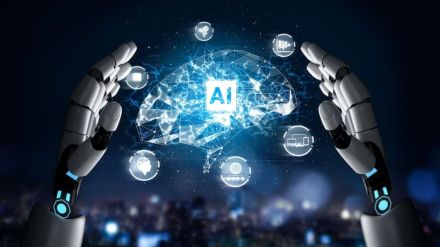By Deb Ghosh
As a team coach, managing small and large team managers face a daunting task of providing personal feedback and recommendations for every skill area. Even as an external team coach, it is not possible to provide personalized attention to all. With that backdrop, Generative AI into coaching and mentoring practices will redefine how individuals receive guidance and support. In this approach, coaching and mentoring will be powered by contextual interaction streaks with AI avatars, providing deep skills and culture feedback.
The synergy of human expertise and AI avatars
Imagine a coaching dynamic where human coaches are supported by intelligent AI avatars. These avatars, drawing from vast databases and tailored models, analyze real-time data to offer immediate insights during coaching sessions. These avatars, rich in knowledge and adaptability will enhance each session, creating a coaching experience that combines the best of human expertise and artificial intelligence. They can easily be used to get contextual analysis for tailored feedback, adaptive simulations, and skills benchmarking, ensuring a dynamic coaching experience.
As the study from Victoria International University of Applied Sciences suggests, “Artificial coaching is likely to be more successful in situations where human coaches have identified and diagnosed the problems that coaches need help with (better defined issues). At this point coachees are likely to be handed onto an AI coach to deal with specific issues that are more formulaic and well defined.”
The timing is right with LLMs
The advent of Large Language Models (LLMs) is the catalyst for this transformation. With the ability to understand and respond to human language these models can create a seamless and dynamic interaction. In practical terms this means personalized journeys in various contexts—be it leadership training, sales readiness, or customer service. The tailored LLMs ensure a deep understanding of human contextual knowledge. For instance, in leadership training, it translates to simulated real-world scenarios for effective decision-making. In sales, it means refining persuasion skills through interactive role plays.
Tailored guidance for every professional level
This approach extends its benefits across various professional roles, catering to the distinct needs of diverse individuals from role specific learning paths, learning aligned with company policies, performance tracking and tailored feedback and much more. The democratization of coaching and mentoring means that a smaller number of coaches can now cover a wider population with the assistance of simulated AI avatars, making professional development accessible to a broader audience.
Designing programmes with custom models
The integration of AI in coaching is not about replacing human coaches; instead, it’s about enhancing the interaction between coach and individual. Pilot programs can serve as a testing ground, allowing organizations to fine-tune the integration of AI into coaching and mentoring. Custom models, specifically oriented towards coaching, enrich the process by providing profound insights and actionable suggestions. Now customs LLMs have the power to rate skills and provide the roadmap of recommended actions. It can guide on cultural nuances and create an entire mind-map of interactions. The best part: it can do so tailored to the competency framework of each organization.
Bridging the gap in adoption
Successfully implementing AI-powered coaching and mentoring involves strategizing for both users and customers. While the benefits for businesses are evident in scalability and efficiency, breaking through to individual users requires thoughtful consideration. For instance, in the experiments run on coaching subjects sourced from Amazon m-turk (micro workers platform), gen-z showed 40% more affinity towards AI enabled coaching. 77% of subjects showed measurable improvements in skills who actually did 5 AI led interactions.
Upholding privacy and security
As we embrace this technological leap, the importance of privacy and security cannot be overstated. Transparent policies regarding data usage, consent, and confidentiality must be established. AI should be a tool for empowerment, not a source of concern. By implementing robust security measures and respecting privacy boundaries, organizations can build trust among users and stakeholders.
What the future holds
Organisations will want to harness the exponential power of AI : An enterprise wide coaching-mentoring peer network which can leverage the nuances of organizational context and culture supported by generative AI interactions. The traditional boundaries of mentoring and coaching will blur and it will come down to something we crave most in the age of AI : facilitating meaningful human to human interactions.
The author is the Director of Research, CoachBot.
